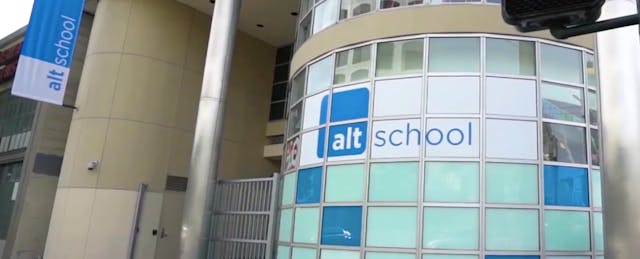After abruptly announcing the closure of two lab schools last November, AltSchool—the San Francisco-based software developer and micro-schools operator—is moving forward with plans to get their platform into public schools.
Today the startup announced its first two public school partnerships, Arcadia Unified School District located in Los Angeles County and Menlo Park City School District in the San Francisco Bay Area.
Devin Vodicka, AltSchool’s chief impact and academic officer, says he expects the shift away from micro-schools toward working with public schools to be a “challenging journey,” pointing to the company’s expectations for frequent iteration of their product.
But being an AltSchool partner is not free, districts do pay a price. Arcadia, which has a three-year contract with the platform, will be paying approximately $5,000 per teacher in exchange for the use of AltSchool’s personalized learning platform, class coaching, IT support and professional development opportunities. According to AltSchool representatives, most partner districts will be paying the $5,000 per teacher per year for the first year of training and onboarding support from AltSchool. After the first year, the price is around $2,500 for the use of the platform and ongoing support from the company.
Vodicka notes that this paid-partnership is different from merely selling a product to a school because the product is developed alongside the consumer.
“This is designed to be a mutual learning experience where we're helping [schools] with whatever is going to accelerate their ability to serve kids and communities,” says Vodicka. “We are also actively in conversation with the partners getting feedback from them on what's working, what's not working and how do we make adjustments to continue to improve.”
The partner districts will only be piloting the program in a few classrooms for the first year. Arcadia will be using the platform at the Rancho Learning Center and certain classrooms in their First Avenue Middle School. Menlo Park, who has a one-year contract with the company, will be piloting the software with their sixth graders at Hillview Middle School. According to AltSchool, additional classrooms will move to the software in the coming years.
Over the years AltSchool has raised over $170 million from venture capital firms such as the Chan Zuckerberg Initiative and Learn Capital to create what the company bills as its “personalized curriculum” software. The company also ran a chain of micro-schools that they used as labs to test their platform.
The software allows educators to build curriculum, tailor assignments, set goals, offer feedback, and track a host of metrics from learners. Students using the platform can create customized “playlist” of assignments and monitor their progress with the hope that their learning will become self-directed.
When asked why the company began to shift away from its lab school model to begin paid-partnerships with public schools, Vodicka noted the difficulties AltSchool faced in running entire institutions of only 30 students.
“The team realized, after going through this journey, that operating schools, especially very small schools, is very challenging, and that there is an operational lift that's required of any school campus regardless of its size,” explains Vodicka.
The software that the company is now selling has been developed and tested alongside educators and students at those brick-and-mortar schools over the past several years. Not everyone recounted a positive experience, however. A former teacher recently wrote about his frustration with the way the software was executed in the classroom.
“The workload was immense and unsustainable, and even when I felt like I was doing what we set out to do—curate educational playlists of cards that were specifically chosen for them—I didn’t feel like it was entirely effective,” wrote Paul France. “It was isolating with every child working on something different; it was impersonal with kids learning basic math skills from Khan Academy; it was disembodied and disconnected, with a computer constantly being a mediator between my students and me.”
Vodicka says experiences such as the one noted by France happen because there is a lack of precise definitions for the term 'personalized learning' and this lack of understanding leads to an oversimplified belief that the practice is all computer-based education. Though some organizations do subscribe to that idea, he feels AltSchool operates differently.
“My experience with personalized learning is that the more impactful approach is broader than [computer-based learning] and focuses on the real world problem solving,” says Vodicka. “That real-world problem solving is not at all screen dependent, but it can be enhanced by powerful technology.”
Recently, AltSchool combined two of their micro-institutions with other AltSchool campuses, losing about 10 percent of families from each school in the process, according to Vodicka. The only school that was not consolidated was the Palo Alto campus, due to its isolated geographic location.
“Those again, I think, are lessons learned on this journey to try to find better ways to serve students,” says Vodicka.


